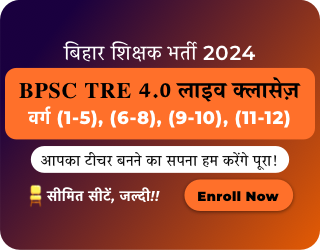Table of Contents
The National Education Policy 2020 i.e. NEP 2020 is a comprehensive education policy introduced by the Government of India in July 2020. NEP 2020 aims to transform the education system in India by providing access to education for all, promoting diversity, equity, and inclusion, and preparing students for the 21st century.
NPE 2020 has introduced 5+3+3+4 education structure where the first five years of education are foundational, promoting multilingualism, emphasizing vocational education and skills training, introducing common entrance exams for university admissions, and leveraging technology to enhance learning outcomes.
NEP 2020 for Higher Education
The National Education Policy 2020 for higher education aims to transform the existing higher education system in India. This policy emphasizes on promoting interdisciplinary studies, introducing new subjects, and providing flexibility in courses and fresh opportunities for students. It aims to increase the Gross Enrolment Ratio (GER) in higher education, provide multiple entry and exit options, and allow students to choose courses according to their interests and aptitude.
The policy envisions setting up of a National Research Foundation, a National Education Technology Forum, and setting up of more Higher Education Institutions in the country. The policy is aimed at creating a holistic and flexible education system that is adaptive to the needs of the 21st century.
National Education Policy 2020 for Higher Education Highlights
- The policy aims to increase the Gross Enrolment Ratio (GER) in higher education to 50% by 2035.
- Around 5 crore seats to be added in higher education.
- The policy proposes the establishment of a National Research Foundation (NRF) to fund and promote research in all disciplines.
- The policy recommends the establishment of a single regulator for higher education, called the Higher Education Commission of India (HECI), to replace multiple regulatory bodies.
- The policy proposes the introduction of a four-year multidisciplinary undergraduate degree, with multiple exit options and opportunities for skill development.
- The policy proposes the establishment of a National Educational Technology Forum (NETF) to promote the use of technology in higher education.
- The policy recommends the development of a credit-based system for degree programs, which would enable students to pursue multiple degrees or programs simultaneously.
- The policy proposes the establishment of a National Academic Credit Bank (NAC-Bank) to facilitate the transfer and accumulation of academic credits across institutions.
NEP 2020 for UG Courses
According to the NEP, undergraduate students will now have the opportunity to choose from several exit points in their program. For instance, a student may decide to leave after the first year, earning a certificate. If they leave after the second year, they will receive an Advanced Diploma for completing two years of study. Completing the third year will result in a Bachelor’s Degree, while the fourth year will merit a Bachelor’s of Research, as usual.
NEP 2020 – UG Exit Options
| Option No. | Options | Academic Recognition |
| 1 | After 1st year of UG programme | Certificate |
| 2 | After 2nd year of UG programme | Advanced Diploma |
| 3 | After 3rd year of UG programme | Bachelor’s Degree |
| 4 | After 4th year of UG programme | Bachelor’s with Research |
NEP 2020 for M Phil
MPhil or Master of Philosophy is a postgraduate academic research programme of two years duration. Candidates can pursue an MPhil course from any stream – Humanities, Commerce, Science, Law, Teaching etc. In an MPhil course, aspirants need to study theory as well as practical subjects. Apart from this, candidates also need to conduct research and present their research findings.
After completing MPhil course candidates can consider pursuing a PhD .With the introduction of four years of integrated bachelors with research program government has discontinued the MPhil degree which is earlier considered to be junior research degree. MPhil or Master of Philosophy is a postgraduate academic research programme that is of two years duration.
Now students can directly pursue the four year integrated programme to incline their career towards research. They are not needed to do MPhil after masters to enroll for Phd. They can directly enter in research area after clearing UGC NET , SET or institute specific entrance tests.
NEP 2020 Introduced HECI
HECI – A Single Regulatory Body with 4 Verticals
The National Education Policy (NEP) 2020 dictates that a solitary regulatory entity shall oversee Higher Education in India. This regulatory entity, referred to as the Higher Education Commission of India (HECI), will comprise four distinct verticals responsible for addressing various aspects of higher education.
| Serial No | HECI Vertical | Function |
|---|---|---|
| 1 | National Higher Education Regulatory Council (NHERC) | Creating and Implementing Higher Education regulation |
| 2 | General Education Council (GEC) | Standard setting for academia |
| 3 | Higher Education Grants Council (HEGC) | For funding academic and research activities |
| 4 | National Accreditation Council (NAC) | Accreditation to academic institutions |
Features of the NEP 2020 for higher Education
The features of the NEP 2020 for Higher Education has been given below:
- Interdisciplinary education: The NEP 2020 proposes the breaking down of rigid boundaries between different academic disciplines and faculties. It encourages universities to offer multi-disciplinary courses that allow students to explore various subjects and fields of study.
- Flexible curriculum and credit transfer: The NEP 2020 recommends a flexible curriculum that allows students to choose from a range of courses and subjects to meet their individual interests and career goals. The policy also proposes a credit-transfer system that enables students to shift between institutions without losing academic credit, thereby boosting mobility and promoting academic excellence.
- Research and innovation: The NEP 2020 aims to make India a global hub for innovation and research by encouraging universities to prioritize research and increasing investment in science and technology. The policy also recommends the establishment of a National Research Foundation to support and fund research activities across all disciplines.
- Vocational education and skill development: The NEP 2020 recognises the importance of vocational education and skill development in preparing students for the job market. It proposes the integration of vocational education into mainstream education, offering apprenticeships, and work-integrated learning programmes to help students acquire relevant skills.
- Online education: The NEP 2020 acknowledges the importance of technology in education and proposes the development of a comprehensive digital infrastructure for education. It encourages universities to offer online courses and blended learning models to reach a broader student population and promote access to education.
- Inclusivity and Equity: The NEP 2020 places significant emphasis on promoting inclusivity and equity in education by addressing the needs of disadvantaged groups such as girls, low-income families, and students with disabilities. It also seeks to provide equal opportunities to students from all socio-economic backgrounds.
- Internationalization: The NEP 2020 aims to promote internationalization by encouraging collaborations with foreign universities, attracting international students, and facilitating student and faculty exchanges. The policy also recommends the establishment of a National Education Exchange Programme (NEEP) to promote educational exchanges between states.
- Autonomy and accountability: The NEP 2020 proposes greater institutional autonomy and decentralization of decision-making to improve the quality and effectiveness of higher education. The policy also emphasizes the importance of accountability, transparency, and regulatory mechanisms to ensure that institutions adhere to quality standards.
Merits of National Education Policy 2020 for higher education
- Flexibility: The new policy offers a flexible, multi-disciplinary and student-centric approach to higher education, allowing students to choose their courses, the pace of their learning and the mode of delivery.
- Multiple Entry and Exit Points: The system allows students to enter or exit their courses at various points, giving them the freedom to opt for different courses at different times during their education.
- Investments in research has been urged: The policy aims to establish a robust research and innovation ecosystem by investing in research and development, funding, and encouraging collaborations between academia and industry.
- Job oriented Training: The policy includes vocational training as an integral component of higher education, aiming to equip students with practical skills to enter the job market.
- Teacher Development: The NEP 2020 focuses on providing comprehensive teacher training and development programs that will help build an effective and competent teaching force. It also seeks to promote a culture of continuous professional development among teachers.
- Enhanced ways: The policy aims to leverage technology to enhance teaching and learning experiences, including the creation of online courses, open educational resources, and e-learning platforms.
Challenges of National Education Policy 2020 for higher education
- Overhauling of higher education system: The National Education Policy 2020 proposes a major overhaul of India’s higher education system. While this could potentially create a more streamlined and effective system, some stakeholders are concerned about the challenges that could arise during the transition.
- Financing: The policy proposes several new initiatives such as setting up of new universities, restructuring of the education system, and promoting online education. Implementing these will require significant funding, and the government needs to find ways to finance them without putting an additional burden on the taxpayers.
- Bridging the Digital Divide: The policy envisions promoting online education and making it accessible to all, including those living in remote areas. However, this will require bridging the digital divide, which remains a challenge in a country where many people still lack access to basic internet connectivity.
- Faculty Development: The policy places a strong emphasis on faculty development and training, but there is a shortage of qualified faculty in many areas of higher education, and it may take time for institutions to build the necessary capacity.
- Equity: While the National Education Policy 2020 seeks to promote equity and inclusion in higher education, there are concerns that some of the proposed measures, such as the four-year undergraduate program, may disadvantage students from marginalized communities or those with disabilities.
In conclusion, the National Education Policy 2020 is a comprehensive document that promises major reforms in higher education in India. The policy recognizes the importance of multidisciplinary education, research, vocational education, teacher education, and the use of technology in higher education. The policy aims to make India a hub for research and development, attract talent from around the world, and prepare students for the changing job market.
The implementation of the NEP 2020 will require coordinated efforts from all stakeholders, and it remains to be seen how effectively the policy will be implemented. However, the NEP 2020 is a step in the right direction towards transforming India’s education system to meet the demands of the changing world.
Download UGC NET Study Notes PDF
The direct link to download UGC NET Study Notes PDF i.e. National Education Policy 2020 for Higher Education has been given below.
Download National Education Policy 2020 for Higher Education Study Notes PDF



 UGC NET Commerce Syllabus 2024 PDF Downl...
UGC NET Commerce Syllabus 2024 PDF Downl...
 NEP 2020 for PhD Students, Check Revisio...
NEP 2020 for PhD Students, Check Revisio...
 How to boost your Score in Reading Compr...
How to boost your Score in Reading Compr...















